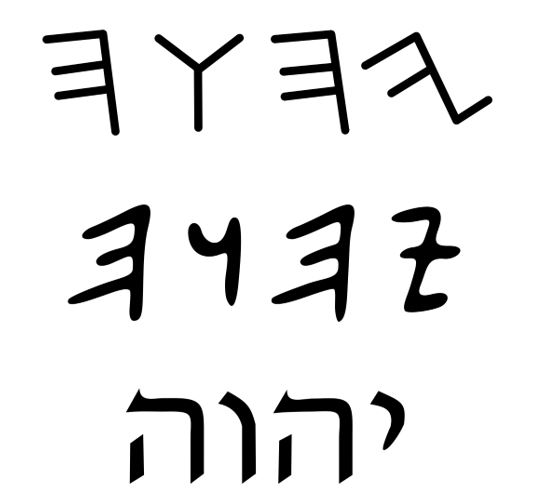
by Teresa Donati
Some years ago, a dear friend’s husband, whose education had been in Jewish schools (Yeshivot), agreed to teach me some Hebrew basics. The ‘textbook’ was his copy of Hebrew scriptures, and so we began, letter by letter, word by word.
Hebrew is a ‘word recognition’ language. When first learning it, there are dots and dashes under the letters, indicating whether to say ‘ah’ or ‘eh’ or ‘oo’ or ‘ee’ – but those marks, called ‘nikkud’ are what we call diacriticals, markings to show how the consonants are tied together, and how the word is pronounced. לגוג . Would you know that this word is Google? (And this is considered a VERY simple example. I am breathless at the thought.)
Yet in Israel, when teaching children, those marks are only used in the first grade! After that, no more vowel markings or pronunciation help! When I asked Hebrew teacher how many hours of homework the poor children in Israel must have, without the dots and dashes, in Israel, she laughed. “They already speak the language,” she said. “We teach them how to read it and write it.”
Of course, I thought. We teach American children how to read and write the language they already speak. But for me and others who did not know the language, both the language and how to read and write it, happened all at the same time. Lots of homework for us. And for me, a continuing need to refer to the dots and dashes to be sure I am pronouncing a word correctly.
So my friend’s husband gamely taught me the writing and the reading, using scriptural passages for each lesson. Needless to say, I needed all the vowel mark helpers! But something else also happened. Sometimes in the scriptures, we saw the four consonants that represent the Name of G-d. Those four letters are not really translatable: YHWH (or JHWH).
The four letters are called by the Greek name: Tetragrammaton. “Tetra” means four, ‘gramma’ is letters. Thus: ‘Having four letters.’ Whenever he spotted those letters coming up in the scriptural passage, I felt him almost stiffen, and he would point to the letters and tell me, “Say Adonai.” ‘Adonai’ means ‘The Lord.’
In other words, the Four-Letter Name itself is not said except once for teaching; after that, it is not to be spoken as though it was just another name. Respect is the key: the Lord’s Name is not used lightly or casually or even in regular prayer. It is a holy Name, kept apart from common or everyday language.
In English, respecting The Name means that G-d is referred to as written here: with a dash between G and d, G-d, or Gd, as some write it now in texting.
People who are raised to respect The Name use Adonai (The Lord) or Elohim or Ha-shem (The Name). Adonai is the most frequent usage, even in the great Jewish prayer, “Hear oh Israel, the Lord our G-d, the Lord is One.” The English version sounds like this: “Shema Yisrael, Adonai Eluhenu, Adonai Echud.” (This is my transliteration of the Hebrew words.)
Christian translations have ‘constructed’ a name for G-d, derived from the four letters: ‘Jehovah.’ It is, alas, a poor attempt to say the special Four Letters. There are NO diacriticals, no dots or dashes, that I have ever seen, that would lead to pronouncing it that way. It is a compromise, but one that is not necessary. ‘The Lord’ would do.
To my dismay, The Book of Common Prayer also has constructed a translation: ‘Yahweh.’ I cannot describe how uncomfortable that casual usage makes me feel, having been taught to respect The Name.
The last time I led a congregation in Morning Prayer Rite Two, we had the Song of Moses, (which is actually The Song of Moses AND Miriam!). This was the beginning:
I will sing to the Lord, for he is lofty and uplifted; *
the horse and its rider has he hurled into the sea.
The Lord is my strength and my refuge; *
the Lord has become my Savior.
This is my God and I will praise him, *
the God of my people and I will exalt him.
The Lord is a mighty warrior; *
Yahweh is his Name
Seeing that last line, before we began the prayer, I explained briefly to the congregation why it is far more respectful to use Adonai. They did so quite happily as we read it responsively.
Many Christian bibles, I think most now, use the term, ‘The Lord.’ If it seems like repetition to say ‘The Lord’ twice, ‘Adonai’ is a wonderful way to link with our Jewish heritage in our Christian services. Especially in a time when anti-Semitism seems to be on the rise everywhere, here is an assertion of our Jewish Jesus who came to bring the world a new vision.
I cannot imagine even Our Lord, who called His Father ‘Abba,’ ever using that Sacred Name. Would you casually refer to your parent by a first name? Even Jesus did not presume to do so.
Neither should we.
Teresa Donati is Professor of Sociology (Emeritus) at Fairleigh Dickinson University, now engaged in full-time writing, including church issues, and Christian fiction.

